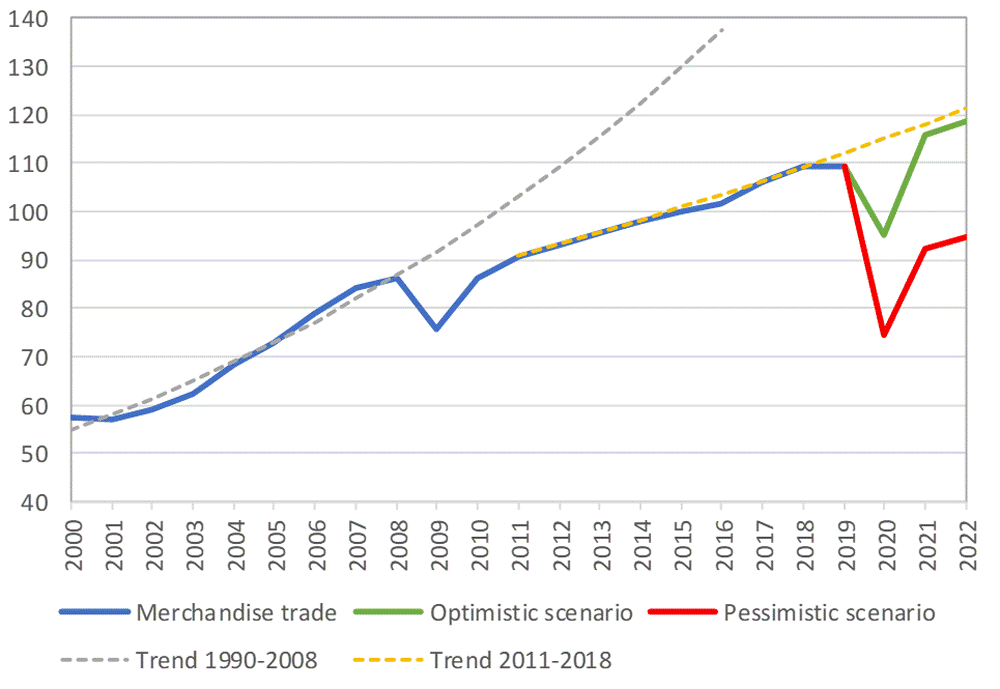While COVID-19 has negatively impacted U.S. businesses exporting products, and global trade as a whole, now is the perfect time for these businesses to strategize and correctly plan for the future. During this planning, the business’s shipping operations (once global trade resumes), should be a priority – and that is where heat-treated pallets take center stage.
The ISPM-15 certified heat treated pallet is one of the most important aspects of a business’s export operations. Without it, your product cannot enter countries like the U.K., Germany, France, and many others. For more in-depth information on heat-treated pallets, and why they are so important in global trade, check out one of our previously written articles here.
While the ISPM 15 certified pallet itself is extremely important, having a trusted and strong heat-treated pallet supplier is just as important. You do not want to run into documentation issues while your precious product sits at a port, or availability issues for vital orders.
Why Identifying a Strong Heat-Treated Pallet Supplier is Important Now
As mentioned previously, there is no denying that COVID-19 has negatively impacted businesses participating in global trade; and while the need for these pallets may be decreased currently, signs are pointing to a recovery to global trade in 2021.
The World Trade Organization is projecting a recovery in global trade under both their optimistic and pessimistic scenarios. WTO’s optimistic scenario predicts that the recovery will be strong enough to bring trade close to its pre-pandemic trend. The WTO is also not ruling out a future with a pessimistic scenario trend during the decline stage, with the recovery reaching optimistic scenario numbers. This scenario would result in the largest up-ward swing and increase in global trade numbers.

This swing would create a large increase in demand for heat-treated pallets all over the U.S. market, in a somewhat short period of time. Which begs the question – will suppliers be able to meet demand if this happens? More importantly, will YOUR supplier be able to meet the demand?
How to Identify a Strong Supplier
Possessing multiple heat-treatment kilns, locations, and strong KPI / Data management practices are all positive signs of a pallet company that is prepared to meet sudden increases in demand. Integrity is just as important. A pallet company that is liable to cut corners or sacrifice ethics in order to meet your needs can do more harm than one that simply can’t fulfill your needs. There are many examples of ways companies can cut corners in the realm of heat-treated pallets, but one of the most common is possessing outdated documentation / certificates or heat-treating off-site where this is also the case.
Lessons We Can Learn From Europe and Brexit
An article recently posted by Express News titled “The wrong kind of pallets threatens border trouble after Brexit” illustrates just how important heat-treated pallets are to some businesses and what an increase in demand can mean to those businesses using these pallets.
The article highlights the current scenario both U.K. and European businesses find themselves in. Due to Brexit, from January companies exporting products in and out of the U.K. will be obligated to use ISPM-15 certified heat-treated pallets. Because of Covid-19, and other factors, pallet suppliers in the U.K. and Europe are not equipped to handle such a demand.
Excerpt from the article:
“According to Dye, as many as 100 million pallets move between the U.K. and EU each year. So far, they haven’t needed to comply with ISPM-15 because movements between EU member states are exempt – something that will come to an end when the post-Brexit transition period ends of Dec. 31.
Pallet makers in both the U.K. and EU have been trying to ramp up production, but their efforts have been hit by the pandemic, Dye said. Installations of new kilns to heat-treat pallets were badly delayed by the virus, he said”
Take-Away
While budget cuts and pivot strategies may be at the forefront of your concerns for 2021, it is important to have a strong contingency plan for the likely recovery as well. As a business exporting products outside the U.S., your company should be prepared to fulfill orders and meet your customer’s demands with ease. A scenario you would like to avoid is experiencing an increase in demand, but not being able to meet that demand due to a lack of adequate pallets. A strong pallet supplier will ensure that heat-treated pallets do not hinder this progression – enabling you to focus on your products and internal operations.
Due to our vast resources, locations, and unparalleled integrity, Kamps Pallets is the supplier you will need going into 2021. We have locations throughout the United States with access to multiple heat-treatment kilns and place the utmost importance on integrity and customer service. We pride ourselves on being able to meet even the toughest challenges during unprecedented times.

